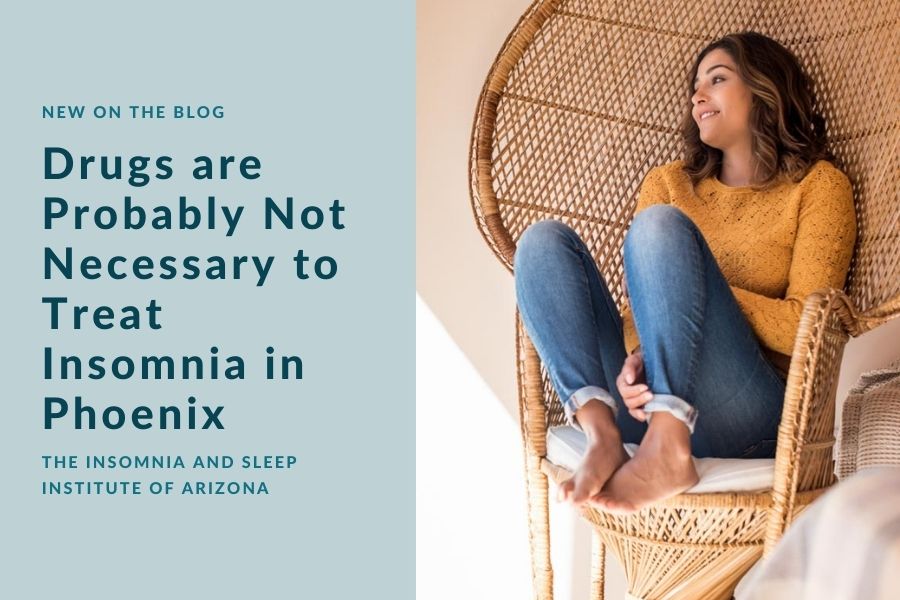If you have chronic insomnia, the American College of Physicians (ACP) reports that you are part of a group that is “often unrecognized and misunderstood”—at least when it comes to primary care. Unfortunately, many patients do not connect with sleep specialists such as those at The Insomnia and Sleep Institute of Arizona until sleep disorders become quite severe. We proudly serve the Phoenix area as the Face of Sleep Medicine and count with unprecedented staffing levels that include three sleep specialists, a clinical psychologist focused on cognitive behavioral therapy specifically for insomnia, and a physician assistant with a Masters in Sleep. So, why aren’t more people with insomnia in Phoenix seeing sleep experts earlier? It has a lot to do with a lack of referrals in primary care.
The Insomnia and Sleep Institute does not require a referral from your primary care physician or any other doctor in order for you to be seen. We are an outcome-driven clinic, so the first step at The Insomnia and Sleep Institute is a correct diagnosis. That’s why consultations are only with sleep specialists who can diagnose sleep disorders in order to guide the next steps in testing and treatment. If a patient “only” sees their primary care physician for a sleep disorder or symptoms of a sleep disorder, the ACP reports that referrals to sleep specialists rarely happen and “too often, medications are the treatment of choice.” Of course, many medications (when used long-term to treat a chronic condition like insomnia) can become problematic and even a danger to the patient’s health.
Medication for Insomnia
Sometimes, medications are necessary short-term to treat insomnia, but ultimately behavior modifications are critical for helping chronic insomnia. Cognitive behavior therapy, or CBT, is essential when treating insomnia in Phoenix. Medications are only helpful in treating the symptoms of insomnia, not the cause. This is why drugs like “sleeping pills” can be helpful for those who have short-term insomnia caused by disturbances such as jet lag, but should not be considered a good choice for chronic insomnia. Also known as “pharmacotherapy,” the ACP stresses that only a very small number of insomnia patients should ever be treated with medications for more than a few days.
Medications can also be used to kick-start behavior modification in some patients. This can complement behavior therapy, such as restricted sleep. This change in sleep pattern requires patients to consider the absolute latest time they can wake up in order to get to work or school on time. This timeline is then aligned with the proper time they should begin bedtime routines and be in bed. In the beginning, it is best to have the patient go to bed when they are ready to sleep, even if this calls for a short timeframe for sleeping (for example, a patient who has to get up no later than 6 a.m. may go to bed at 12:30 a.m. if that is the earliest that they may fall asleep). Such a short 5.5-hour window is of course not ideal for most adults, but the bedtime is then inched back in 10 – 15 minute increments as the restricted sleep cycle takes effect. This behavioral approach works for many insomnia patients and, in turn, does not require long-term medication.
Why CBT for Insomnia Isn’t More Widely Available
The ACP stresses that CBT is “without question the best way to treat chronic insomnia and it’s recommended as first-line therapy by all published guidelines.” By definition, chronic insomnia occurs for a minimum of three months on most nights. Nearly twice as many women struggle with insomnia as opposed to men. CBT is a technique for permanently changing sleeping patterns via expert guidance, as well as build sleep education and stimulus control along with cognitive therapies. Relaxation, mindfulness, and better sleep hygiene rituals can all be helpful in avoiding long-term medication use to treat insomnia.
Unfortunately, many with insomnia do not get referred to a sleep specialist and/or are not aware that sleep experts are available to them. On average, addressing insomnia with a sleep specialist requires 4 – 8 sessions, which is quite short. Those in the Phoenix area, or those who are able to travel to Arizona, have access to the “Top Doc” in sleep medicine for the past six straight years. The ACP notes that there is a shortage of insomnia sleep specialists, but that is not the case for those in Phoenix. Connect with The Insomnia and Sleep Institute today by calling the office or simply complete the online form.





